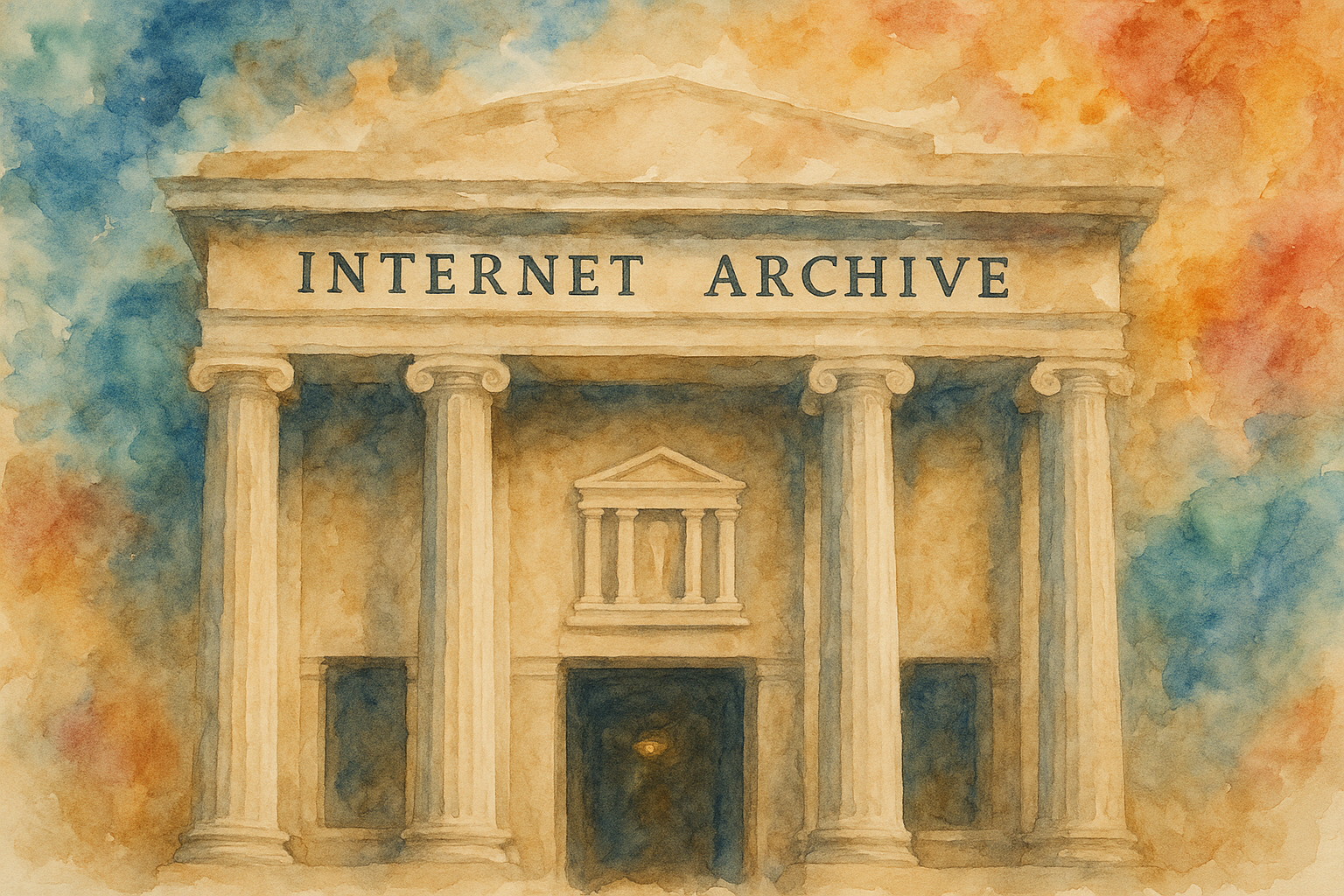This week, the tech world is a tale of two very different philosophies. On one hand, we’re seeing a monumental step forward for the preservation of digital history. On the other, powerful new movements are leveraging AI to dismantle regulations and challenge the very foundations of copyright. Let’s dive into these pivotal developments and what they signal for the future.
A Landmark Victory for Digital Preservation
In a move celebrated by archivists, historians, and anyone who values knowledge, the Internet Archive has been officially designated as a U.S. federal library. This is more than just a title; it’s a powerful affirmation of the Archive’s critical mission to provide “universal access to all knowledge.” Championed by Senator Alex Padilla, this status could offer the institution enhanced legal protections and federal resources, safeguarding its invaluable collection of websites, books, movies, and software for generations to come.
What this means: This federal recognition significantly strengthens the Internet Archive’s position in ongoing legal battles over digital lending rights and solidifies its role as a fundamental piece of our cultural and historical infrastructure. It’s a huge win for open access to information. Read the full article.
AI as a Political Tool: The Deregulation Engine
In a fascinating and controversial display of tech’s power, a group known as the “DOGE Goons” is reportedly using AI to systematically identify and target federal regulations for elimination. Their stated goal is to cut through bureaucratic red tape by flagging rules they deem outdated, contradictory, or inhibitive to progress. This initiative showcases a potent, emerging use case for AI in the political arena, not just as an analytical tool, but as an active agent of policy change.
What this means: Using AI to navigate and dismantle complex legal frameworks could radically accelerate the pace of deregulation. This raises profound questions about algorithmic accountability, transparency, and the potential for automated systems to influence the laws that govern society. Read the full article.
The High-Stakes Debate on AI and Copyright
Adding fuel to the fire, former President Trump has put forth an aggressive AI plan that prioritizes deregulation and dismisses the need for copyright payments for AI training data. This proposal directly confronts the core argument of creators, authors, and media outlets who contend their intellectual property is being used to build multi-billion dollar AI models without their consent or compensation. The plan suggests that the public good of advancing AI outweighs private copyright claims.
What this means: Such a policy would represent a seismic shift in the tech landscape. It could dramatically lower the barrier to entry for building powerful AI models, potentially accelerating innovation. However, it would also threaten the livelihoods of creators and could fundamentally devalue intellectual property, setting the stage for a massive legal and ethical battle over the future of AI. Read the full article.
These stories, while distinct, are deeply interconnected. They reveal a society grappling with the power of technology to both preserve our past and radically reshape our future. The lines are being drawn in a new kind of conflictone fought with code, data, and algorithms. How we choose to regulate AI, protect our digital heritage, and value creative work will have consequences for decades to come. This is a conversation that is just beginning, and it’s one that affects us all.

